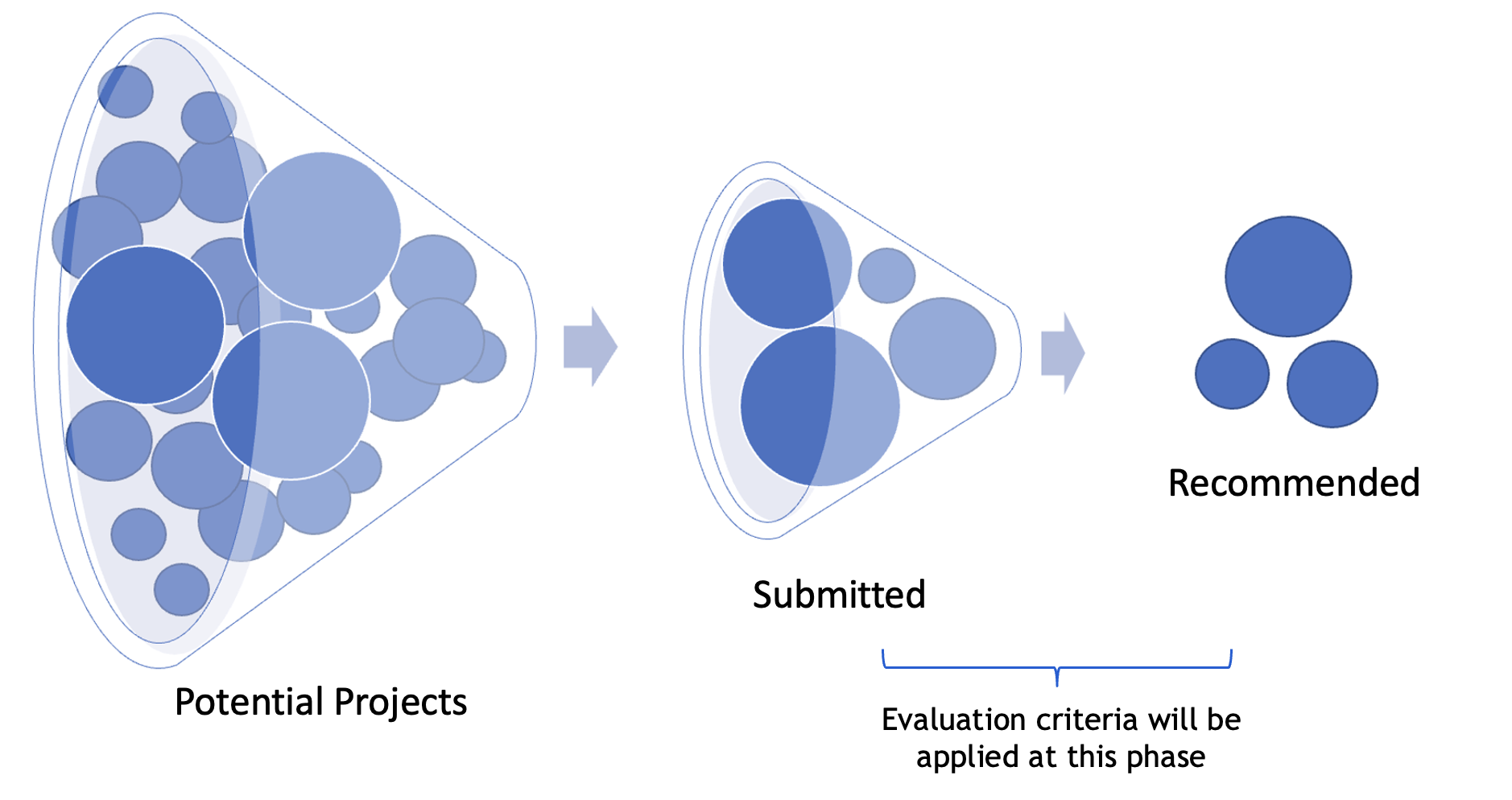CIP Evaluation Criteria
Evaluation Criteria
The Planning Department has been working with a CIP Oversight Committee to revise the CIP evaluation criteria and develop a system for scoring projects. The CIP Oversight Committee is comprised of representatives from the eight major capital budget agencies, as well as the Department of Finance, Mayor's Office of Equity and Civil Rights, and the Recovery Office.
Below are a set of new criteria that will be tested for the FY23-28 CIP process and considered along with other information as part of the decision-making process. We think these criteria better capture what is important in selecting capital projects, but we know the criteria will continue to evolve and we therefore welcome feedback. The criteria also provide a guide to what is most important in a capital project, to help agencies develop the most impactful projects. We expect to continue to refine the criteria.
What are the new criteria?
There are seven criteria that will be used to evaluate projects. The first is a baseline criteria - a simple "yes or no" question. The remaining six are used to evaluate projects that are not required by law.
Baseline Criteria (Yes/No)
- Legal Mandate: Is this project required by a state, federal, or local law? In some cases, capital projects must be completed because of a legal mandate, such as a consent decree.
Evaluation Criteria
- Equity: Does this address a gap in outcomes based on race, religion, gender, sexual orientation, or income? As part of this criteria, agencies will be required for the first time to define who is expected to benefit from each proposed capital project.
- Health and Safety: Is there an immediate or long-term health or safety benefit? While the need to prioritize funding for unsafe infrastructure is obvious, it is also critical to consider broader public health impacts of investing, or not investing, in a project.
- Asset Condition: What is the condition of the building or infrastructure? Unfortunately, the City does not have sufficient resources to maintain a state of good repair for all infrastructure. Therefore, it is critical to renovate, replace, or dispose of infrastructure before it reaches a point of failure and strategically time improvements to minimize cost (ex. replace the roof before water damage compromises the rest of the building).
- Return on Investment: Will this increase tax revenue, reduce costs to the City, or leverage other funds? With extremely limited capital funds available, it is important to understand if some projects have the ability to reduce costs or bring in additional resources that would not otherwise be available.
- Environmental Impact: Will the project improve air or water quality or reduce greenhouse gas emissions? This criteria encourages agencies to consider environmental impact when developing the scope of a project (for example, adding solar panels to building renovation project).
- Efficiency and Effectiveness: Is this the most cost-effective solution? Is it coordinated with other projects to increase impact? What is the problem the agency is trying to solve? Does the project successfully solve the problem? Are there other solutions that might solve the problem in a more creative and/or cost-effective way?
How are the criteria defined and used?
The Planning Department and CIP Oversight Committee developed a proposed scoring guide. Agencies will score their projects based on this guide. CIP Oversight Committee members will review and adjust the scores where necessary, and the scores will be considered along with other information submitted by the agency during the evaluation process.
What other information is considered in formulating recommendations?
The Planning Commission considers the evaluation criteria as well as alignment with plans and administration priorities. Recommendations must also consider the most urgent needs and ensure that all agencies have at least a minimum amount of funding to maintain critical services.
How were the new criteria developed?
To start, Planning staff surveyed other cities across the country that use evaluation criteria to inform capital budgeting decisions. From there, the CIP Oversight Committee provided input and feedback into their considerations when developing capital projects. A set of criteria was tested during the FY22-27 CIP process, which helped refine the criteria further. In summer 2021, the Planning Department held a series of focus groups with stakeholders, which helped further refine the criteria to those that will be tested during the FY23-28 process.
At what point in the CIP process are these criteria applied?
These criteria will be used to evaluate projects that are requested by agencies. While agencies request more funding than is available, they are limited in the amount that they can request (on the graphic below, notice that submitted requests are much fewer than potential projects). This allows them to better plan, based on a realistic level of funding, while also putting forth some urgently needed projects in case additional funds become available.

Will the criteria apply to the entire capital budget?
A large percentage of the City’s capital budget is funded with restricted sources. Our capital fund sources site has more information. At this stage, the evaluation criteria will only be used for projects using the more discretionary sources, which include GO bonds, general funds (PAYGO), Highway User Revenue, County Transportation Revenue Bonds, Program Open Space, etc. These fund sources have their own restrictions but are generally the most flexible funds available to the City. At this time, utility funded projects will not be evaluated using these criteria (water, wastewater, stormwater, and conduit).
How do I learn more or provide feedback?
We would welcome feedback on these criteria. We also welcome the opportunity to present these evaluation criteria as part of our CIP Overview presentation to community groups. Please email Kristen Ahearn with feedback, questions, or to schedule a presentation.